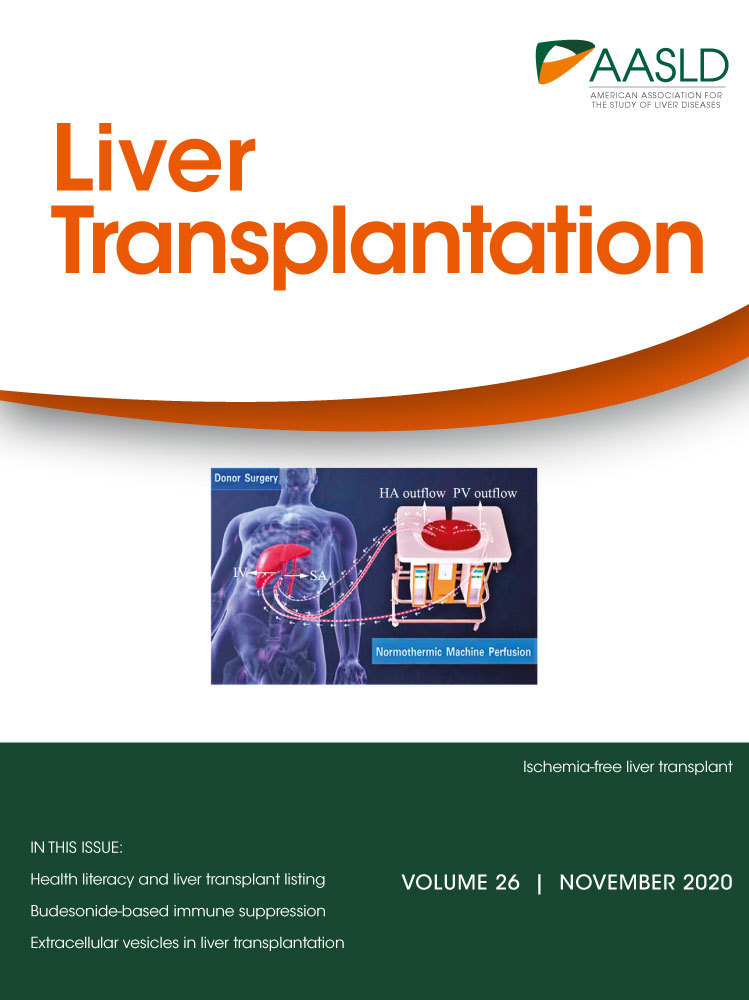Coronaviruses and Immunosuppressed Patients: The Facts During the Third Epidemic
Abbreviations
-
- COVID-19
-
- coronavirus disease 2019
-
- LT
-
- liver transplantation
-
- SARS-CoV-2
-
- severe acute respiratory syndrome coronavirus 2
We read with interest the letter by D’Antiga evaluating the early experience with coronavirus disease 2019 (COVID-19) in liver transplantation (LT) recipients in Bergamo, Italy, suggesting that immunosuppression would not increase the risk of severe infections.(1) Another recent report also showed that mortality in LT patients affected by COVID-19 appeared to be limited to longterm (>1 years after LT) recipients with mild immunosuppression and affected by metabolic and vascular comorbidities.(2) Even though the pathophysiology of severe acute respiratory syndrome coronavirus 2 (SARS-CoV-2) infection is still under investigation, the immune system appears to play a major role especially in patients with severe disease,(3) thus supporting previous observations.
Between February 21, 2020—the day the first Italian case of COVID-19 was confirmed in Codogno, near Milan—and April 21, 2020, 16 LTs were performed in our center. Regular screening for SARS-CoV-2 was carried out in LT candidates at admission and repeated weekly in hospitalized recipients as well as in all the potential deceased donors. No candidate tested positive at admission, although 2 recipients were diagnosed with COVID-19 (9 and 45 days after LT) and showed an almost asymptomatic course of the infection. The immunosuppressive regimen was left unchanged. Concomitantly, in our preliminary experience, SARS-CoV-2 infection was diagnosed in 5 longterm LT recipients (>1 year after LT) transplanted at our center (>100 transplants/year performed in the last 5 years) who required hospital admission. Among these patients, 2 needed noninvasive ventilation, 2 died due to respiratory failure, and 1 died of septic shock in neutropenia following chemotherapy for lymphoma. Among the 5 patients, 3 patients were affected by diabetes mellitus, 4 were affected by arterial hypertension, and 2 were affected by advanced cancer, supporting a previous report(2) on the role of comorbidities in LT recipients with COVID-19. As recently observed,(1) severe immunosuppression, as used in the early posttransplant period, did not appear to negatively affect the outcomes, and calcineurin inhibitors may also partly suppress the innate immune response,(4) which appears to play a relevant role in the pathophysiology of severe disease in SARS-CoV-2 infection. Nonetheless, because other immunomodulating therapies are emerging in the treatment of COVID-19 (ie, tocilizumab or high-dose steroid), caution is warranted to limit the risk of superimposing bacterial and fungal infections, especially in critically ill patients. Moreover, prompt identification of cases and their management in COVID-19–dedicated areas by a multidisciplinary team can limit the nosocomial spreading of the infection without negatively affecting regular care to hospitalized patients.




